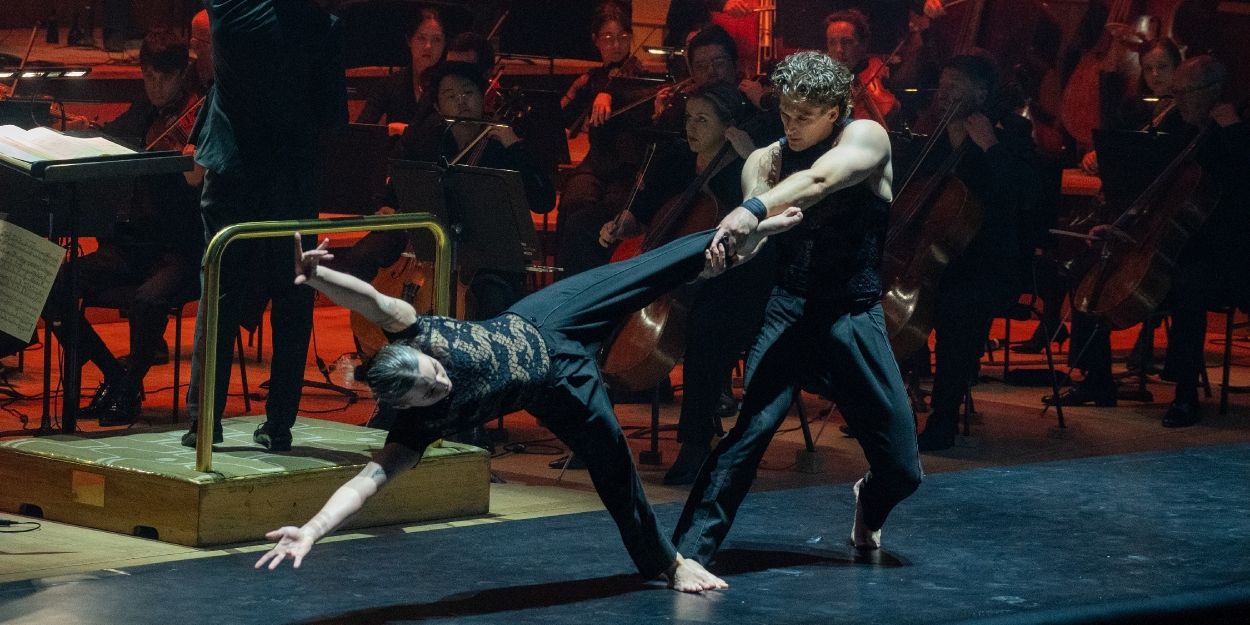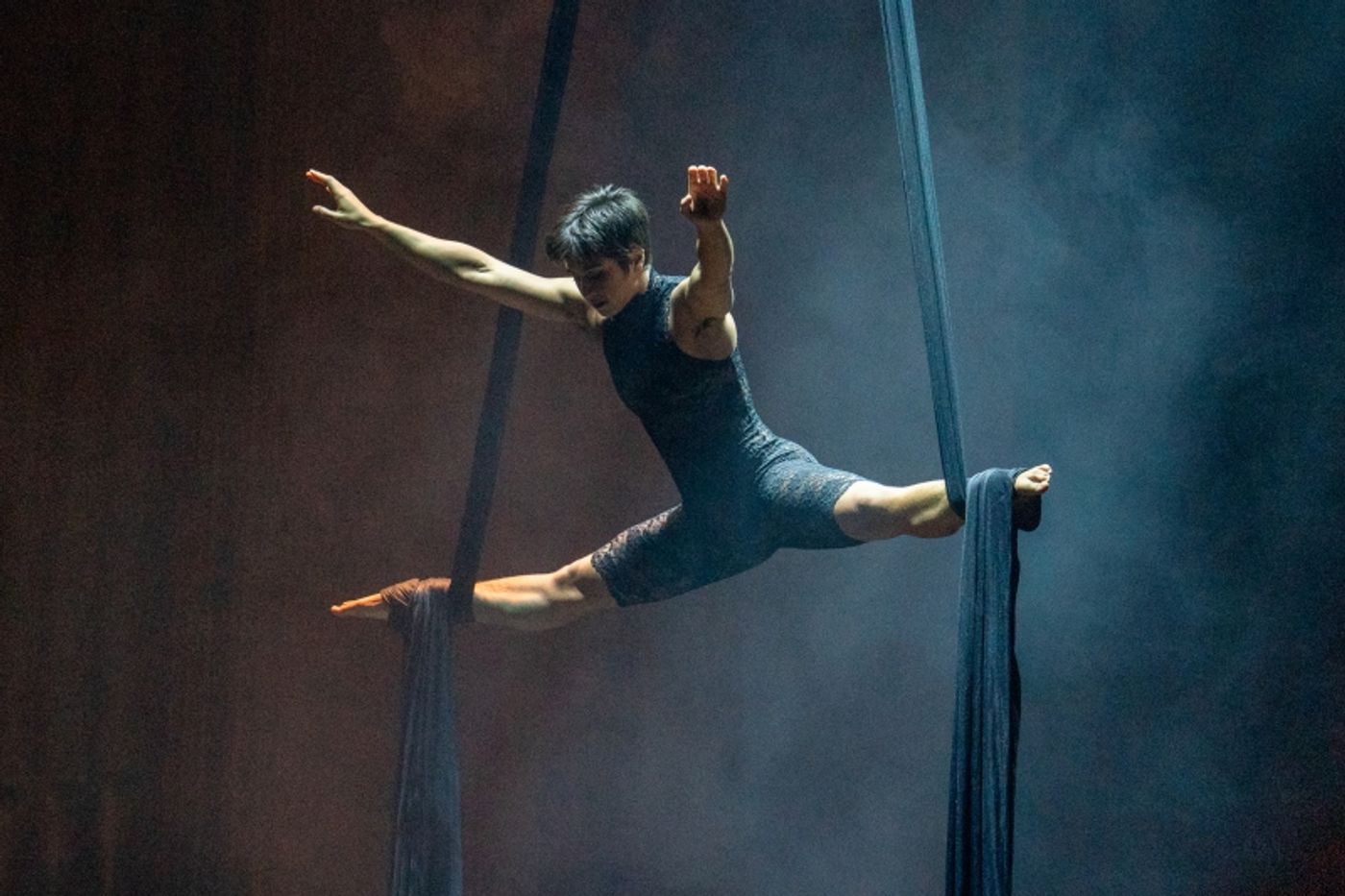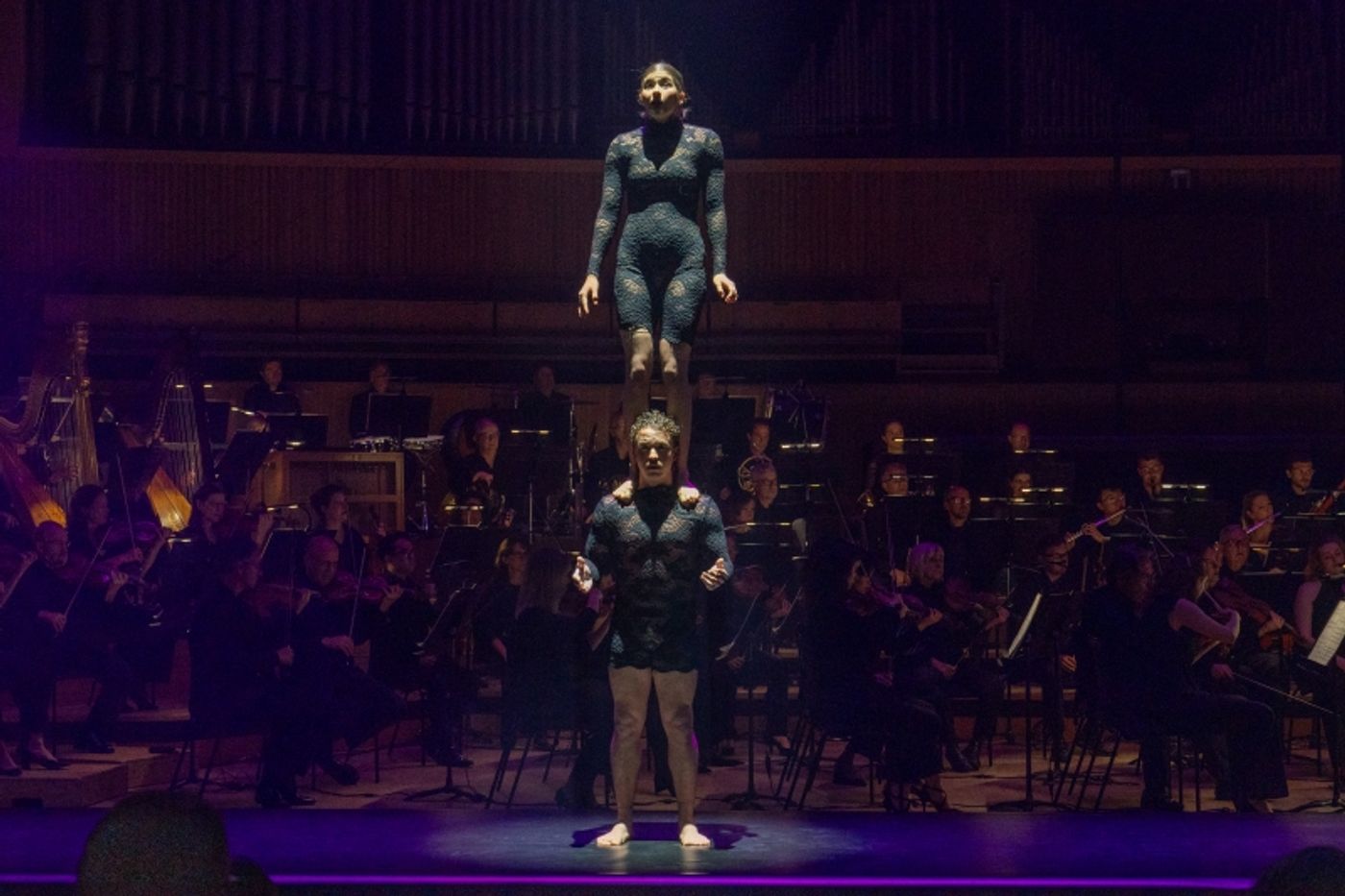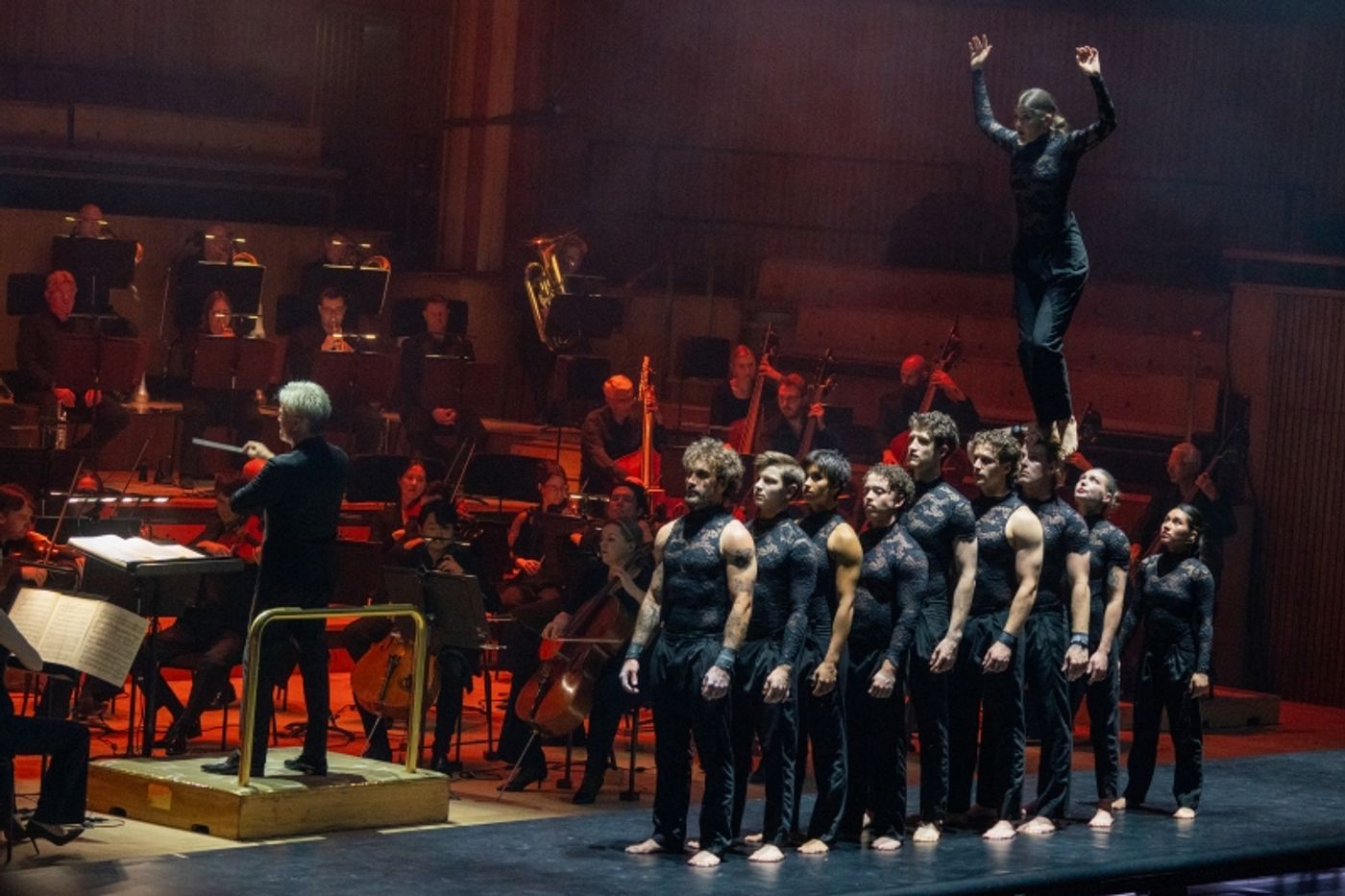Review: DAPHNIS AND CHLOE, Southbank Centre
Combining international circus artists and live orchestral music should be a win-win. So what happened?

![]() Swapping out ballet for circus is a bold move but maybe that’s just what the Southbank Centre’s Multitudes festival is all about as it sets off on a mission to present orchestral music in a new light.
Swapping out ballet for circus is a bold move but maybe that’s just what the Southbank Centre’s Multitudes festival is all about as it sets off on a mission to present orchestral music in a new light.
Its initial show - a statement pairing of London Philharmonic Orchestra playing Ravel’s Daphnis et Chloé and La Valse behind a display of high-flying acrobatics courtesy of Circa - certainly does that, though perhaps not in the way it was intended.
.jpg?format=auto&width=1400)
Brainchild of artistic director Mark Ball, Multitudes intends to refresh the public perception of an art form whose public perception has fallen somewhat by the wayside over the last century. To that end, they are presenting a series of shows where classical musicians perform alongside artists including Marina Abramović, George The Poet and Sine Buyuka.
The concept behind Daphnis and Chloe is, at least on paper, a sound one. Orchestras are fairly static and ballet is traditionally ground based so contrasting both with the high-flying movements of circus performers should be a win-win: classicists should get new insights into two well known works and those new to these pieces can engage in a more digestible form than classroom music lessons. I mean, who doesn’t like the idea of having their hearts lifted by soaring strings while their eyes are busily taking in all kinds of physical wonders?

Edward Gardner waves his baton to kick things off and five pairs of lithe acrobats in skintight lacy outfits, lined up on a long, dark padded strip in front of the orchestra, begin a coordinated movement. It’s a moment of synchronicity that is rarely repeated once things get going. Any alignment between musicians and circus performers seems (at best) incidental and (at worst) accidental.
That’s not to take away from the excellent performances happening either side of the conductor. Gardner wields the LPO like a baseball bat, socking us between the eyes with the stirring power of this peerless symphonie chorégraphique with a helping hand from the BBC Singers. Daphnis et Chloé is a phenomenally evocative piece, its bold pastel shades and impressionist punch lifting the emotional narrative. It’s almost impossible not to be swayed this way and that, even with your eyes closed.

Circa, for their part, bring a well-rounded box of tricks to the party. Starting from straightforward paired routines, they evolve into more complex combinations that eventually explore the space around the musicians. The aerial elements are the highlight here, especially a solo routine on long black silks that features a stunning display of no-hands splits. A hanging pole piece acts as a metronome of sorts while a mid-air dance using straps is a tender moment amid the more frenetic chapters. Above and behind the orchestra, a raised platform with two fixed poles allows the Circa crew to make some standard shapes, albeit in combination.
For this outing, Circa artistic director Yaron Lifschitz has decided to lean heavily on two of the Australian company’s signature moves. A human staircase is recreated with different numbers of people and to different purposes while there is a tiresome overuse of the totem pole-like two-highs and three-highs. There will always be people impressed seeing acrobats standing on someone else’s shoulders, hands and even on their head but this technique now needs to be radically refreshed or ditched (dealer’s choice).

As with their lamentable recent show Duck Pond (seen in London in this same room), the execution here often lacks finesse and there are more than a few wobbles in ways both big and small. Given that this is a troupe with a scintillating track record and who wowed with their superlative 2023 effort Humans 2.0, it is disappointing how many minor slip-ups are plainly visible. Moreover, Circa are renowned for how naturally they infuse dance choreography into their routines but here it feels awkward and under rehearsed. The thematic use of rope is too obtuse to add much here and there’s a bizarre change in costumes as suddenly the acrobats don trousers or skirts.
Appropriately enough, this eclectic pairing does throw up multitudes of thoughts but two come to the fore: Ravel’s music is just as transporting without its usual ballet accompaniment while Circa’s artistic progress continues to nosedive.
The Multitudes festival continues at Southbank Centre until 3 May.
Photo credit: Pete Woodhead
Reader Reviews
Videos

